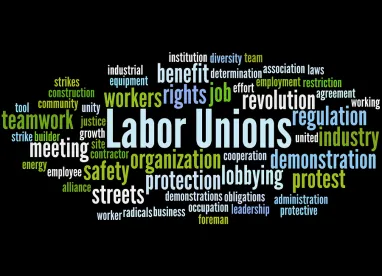The U.S. Supreme Court will once again address whether public-sector unions can collect mandatory fees from nonmembers to help pay for collective bargaining.
As previously reported, the high court heard this issue last term in the case of Friedrichs v. California Teachers Association and appeared poised to rule against the union, but deadlocked 4-4 following the death of Justice Antonin Scalia. That caused the lower court’s decision in favor of the unions to stand. Now that the court is at full strength, newly confirmed Justice Neil Gorsuch may provide the determining vote banning the fees in favor of GOP lawmakers’ and business advocacy groups’ agendas.
The new case, Janus v. American Federation of State, County and Municipal Employees, concerns an Illinois state employee who claims the fees violate his First Amendment rights. The employee is not a member of the American Federation of State, County and Municipal Employees, but is required to pay fees to the union as a state employee, as Illinois law requires workers who choose not to join a union to “pay their proportionate share of the costs of the collective bargaining process, contract administration and pursuing matters affecting wages, hours and other conditions of employment.” More than 20 states have similar “fair share fees” laws.
The Supreme Court’s precedent-setting decision in Abood v. Detroit Board of Education holds that nonmembers do not have to pay fees for the union’s political activities, but that exemption does not extend to fees for collective bargaining issues such as employment conditions. The challengers in the new case argue all compulsory fees violate the First Amendment.
The court will hear arguments early next year and is expected to issue a ruling by June 2018.




 />i
/>i

